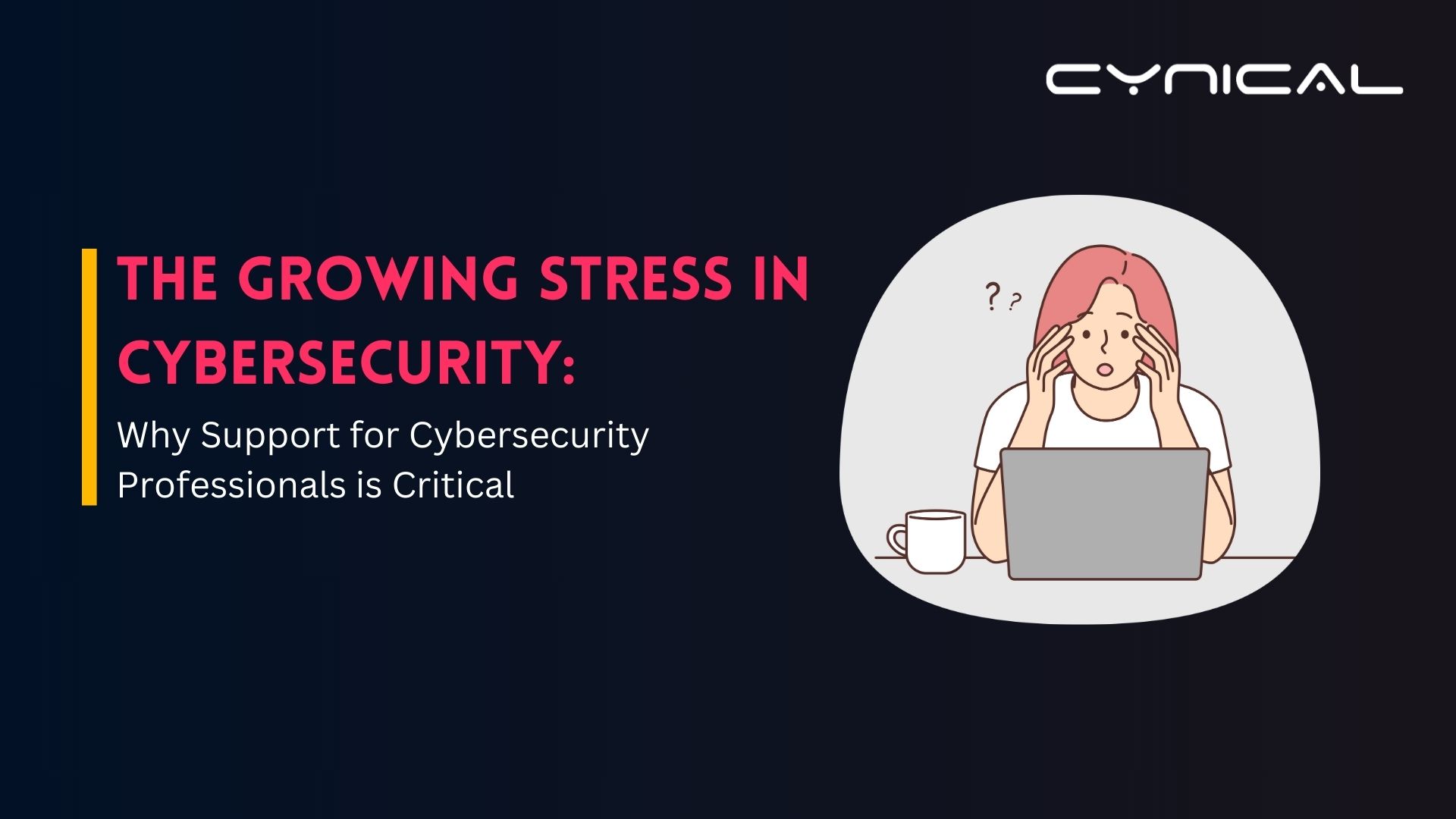- November 6, 2024
- Posted by: Bikash Sharma
- Category: Business plans, News

The Growing Stress in Cybersecurity: Why Support for Cybersecurity Professionals is Critical
In today’s digital landscape, the role of cybersecurity professionals is more crucial—and demanding—than ever before. An ISACA survey reveals that two-thirds of cybersecurity experts report increased stress levels, a concerning trend that has escalated over the past five years. From evolving cyber threats to limited resources, the pressures on these “digital defenders” are unprecedented. This highlights a pressing need for companies to support their cybersecurity teams, ensuring they remain resilient in a constantly shifting environment.
The Top Sources of Cybersecurity Stress
1. Increasingly Complex Threat Landscape
Cybersecurity threats are becoming more sophisticated. Gone are the days when a simple firewall could keep systems safe. Today’s attackers employ complex tactics, from AI-driven hacking techniques to multi-layered social engineering attacks. In particular, social engineering threats, like phishing, target human error, making cybersecurity a challenge that requires constant vigilance across every level of an organization. According to Adobe’s VP of Cyber Operations, Mike Mellor, the increase in these attacks necessitates a shift towards robust security cultures, comprehensive anti-phishing training, and advanced defenses like zero-trust networks.
2. Underfunded Cybersecurity Budgets
Even as cyber threats grow, cybersecurity budgets often fail to keep up. ISACA’s report shows that more than half (51%) of cybersecurity professionals view their budgets as insufficient, with only a small fraction anticipating budget increases next year. With limited financial resources, teams struggle to implement the latest security technologies and expand training programs, leaving organizations vulnerable to attacks.
3. Staffing Shortages
In addition to budget constraints, cybersecurity staffing levels remain alarmingly low. Over 57% of organizations report understaffed cybersecurity teams, and the pace of hiring has slowed, with many organizations unable to fill entry-level and advanced roles alike. As a result, current staff members face higher workloads and longer hours, increasing the risk of burnout.
4. Retention Challenges
The cybersecurity skills gap isn’t just a hiring issue; it’s a retention issue, too. Fifty-five percent of organizations report difficulty in retaining skilled cybersecurity professionals. With increasing job demands, cybersecurity experts are often stretched to their limits, leading to potential burnout, attrition, and high turnover rates. Retaining skilled staff is essential, as seasoned professionals bring valuable experience that is not easily replaceable.
5. Rising Frequency of Cyberattacks
The frequency of cyberattacks is on the rise, with 38% of organizations reporting a significant increase in attacks. Nearly half of the organizations in the study expect a major attack within the next year. These relentless threats require cybersecurity teams to be constantly prepared, adding to the stress and pressure they face daily. Unfortunately, only 40% of cybersecurity professionals are confident in their organization’s ability to detect and respond to these threats effectively.
How Organizations Can Support Cybersecurity Professionals
To prevent burnout and improve cybersecurity effectiveness, organizations must prioritize the well-being of their cybersecurity teams. Here are a few critical steps:
1. Invest in Training and Development
Providing advanced training and development opportunities can help cybersecurity professionals stay up-to-date on the latest threats and defensive strategies. Companies can also offer certifications and continuing education to bolster skills and build resilience. Training and upskilling should include both technical and soft skills, particularly stress management and time management.
2. Embrace a Zero-Trust Architecture
A zero-trust approach, which assumes that no one inside or outside the network can be trusted without verification, adds an extra layer of security, helping to reduce the workload of cybersecurity teams. In addition, implementing phishing-resistant authentication can significantly lower the risk of social engineering attacks, which are among the top stressors for cybersecurity professionals.
3. Increase Budget Allocations
To address understaffing and resource limitations, increasing cybersecurity budgets is essential. Funding for essential tools, staffing, and training must be prioritized. This investment not only strengthens the organization’s defenses but also shows cybersecurity staff that their efforts are valued, which can boost morale and job satisfaction.
4. Promote Work-Life Balance
Flexible work arrangements, mental health support, and opportunities for rest and recovery can alleviate stress for cybersecurity teams. Recognizing the high-pressure nature of cybersecurity roles, employers should encourage work-life balance, time off, and a supportive environment where employees feel comfortable seeking help if needed.
5. Foster a Security-Conscious Culture
Cybersecurity cannot be the responsibility of one team alone. Building a security-conscious culture throughout the organization helps distribute the responsibility, creating a team of “security allies” across departments. With regular training and awareness programs, non-technical staff can also recognize potential threats, alleviating some of the burden on cybersecurity professionals.
Conclusion
In a world where cyber threats grow more complex each day, supporting the well-being of cybersecurity professionals is critical. At Cynical Technology, we believe that taking care of your cybersecurity team is not just good for the individual; it’s also good for business. A well-supported cybersecurity team is better equipped to tackle the evolving challenges they face, helping safeguard the organization’s most valuable assets.
Investing in training, budgets, and mental health support for cybersecurity teams can help retain talent, reduce turnover, and strengthen the overall security posture of any organization. By building a culture that values and supports its cybersecurity professionals, organizations can not only reduce the risk of burnout but also ensure that they remain prepared for whatever challenges lie ahead.
If your organization is looking to build a resilient cybersecurity strategy that supports your team and strengthens your defenses, contact Cynical Technology for expert guidance. Together, we can help build a safer, more secure future.
